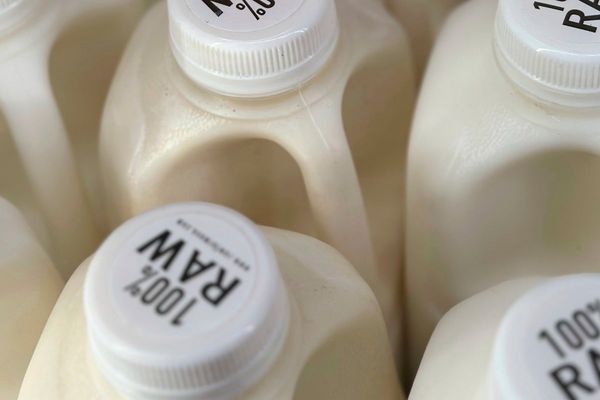Water will be trucked to Yuelamu as a bandaid solution while the Northern Territory's water supplier searches for a more sustainable remedy to the remote community's extreme water stress.
Power and Water senior manager of demand services Kylie Climie said crews monitoring groundwater noticed a far more significant drop in supply than expected.
"We have escalated our response from it being a very high water-stressed community to an extreme water-stressed community," she said.
Ms Climie said there was no evidence yet of a lack of immediate water supply within the community, 300 kilometres north-west of Alice Springs.
"The tap is still most definitely flowing with good quality, safe water to drink," she said.
She said Power and Water had identified a viable temporary water source 30km from Yuelamu and would finalise the logistics of carting water to the community over the next week.
"The way that people in the community will receive water won't change ... it will still come out of their tanks, but it will be via a truck rather than out of the ground," Ms Climie said.
Longstanding supply issues
Power and Water believe the water supply in Yuelamu is at its lowest ever level after a longstanding history of water insecurity in the community.
The entire community of about 220 people was forced to use a single tap to access drinking water in 2016 after an outbreak of toxic blue-green algae infected the dam used to supply Yuelamu with water.
Ms Climie said Power and Water were assessing whether the dam could become a feasible water supply for the community again.
In 2020, the council used a $120,000 NT government grant to purchase 30 hydropanels, designed to make water "out of thin air."
The panels use solar power to collect water vapour, which is then mineralised and stored in a tank ready for consumption.
Ms Climie said that project had worked, but only on a small scale.
"If you want to talk about cost per kilolitre produced, it's quite expensive water," she said.
Central Desert Regional Council acting chief executive Leslie Manda said it would cost more than a million dollars to expand the hydropanel project to supply the whole community of Yuelamu.
But he said that it was "more of a short term or emergency" option, with the community now relying on long-term plans by the NT Government to drill for new water sources.
Residents worried about water security
Mr Manda said the situation in Yuelamu was "very concerning" for residents, whose complaints had prompted Power and Water to intervene to improve water management in the community.
"There's no other alternative source, and surrounding aquifers do not get recharged that often," he said.
He said council was "actively advocating" on behalf of residents with the Territory and federal governments around water security for remote communities.
"The Northern Territory government has identified initiatives or projects to privatise water security within remote communities by funding a $28 million project over a four-year time frame," Mr Manda said.
This included a Power and Water initiative to help residents manage leaks and water usage using "smart meters" to collect water usage data in real time.
"[That] program has been successful in Yuendumu where over the last almost six months, the demand management program has been able to save approximately 25 gigalitres of water, so there is merit in that," he said.







